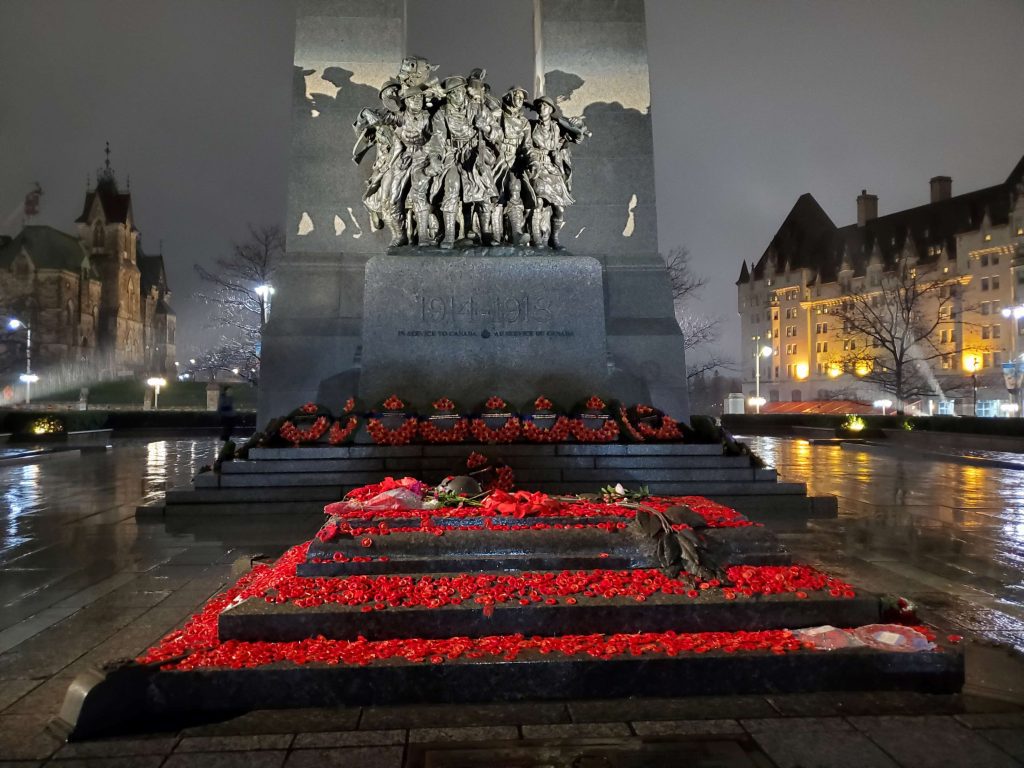- 2021-12-14
- Statement
A statement in response to the Department of National Defence’s apology to survivors of military sexual misconduct (MSM)

The Centre of Excellence on PTSD (CoE – PTSD) acknowledges the formal apology delivered by Minister of National Defence, Anita Anand, on December 13, 2021, as a positive step in the recognition of the harms suffered by individuals who have experienced sexual misconduct while serving in the Canadian Armed Forces (CAF).
Chief of the Defence Staff Gen. Wayne Eyre and Jody Thomas, Deputy Minister of National Defence also offered apologies, and within, acknowledged the impact of MSM on friends, Family members, and bystanders. This formal, public apology is a recognition and validation of the experience of thousands of CAF members (current and former, Federal Public Servants of the Department of National Defence (DND), and Staff of Non-Public Funds, some of whom may also be Veterans), and furthers DND and CAF’s public commitment to change. This apology follows other commitments towards change, including the Heyder Beattie Class Action, changes to CAF and Veterans Affairs Canada (VAC) policies, and other ongoing efforts, including a Restorative Engagement program, and funds for expansion of the Sexual Misconduct Response Centre (SMRC)’s mandate and services offered.
It is the position of the CoE – PTSD that for its apology to be meaningful, DND and the CAF must continue to work toward sustained culture change and gender equality. This would involve taking account for the wrongdoings, acknowledging the legacy of marginalization and exclusion of women and 2SLGBTQ+ members, and taking full responsibility for creating and enabling the gendered and sexualized culture that permits military sexual misconduct, and expressing regret for what happened—and for what continues to happen.
Within the CAF, women remain at greater risk for sexual misconduct, but the experiences of men and gender-diverse people are increasingly coming to the fore. Indeed, the experiences of 2SLGBTQ+ and people of colour may be exacerbated by discrimination on those grounds. Individuals who are part of multiple equity-seeking groups may experience the cumulative stress of intersectional discrimination that puts them at increased risk of developing PTSD and other mental and physical health problems.
Military sexual misconduct can include sexual harassment, hazing rituals, sexual assault and/or discrimination on the grounds of sex, gender, gender identity, or sexual orientation. Individuals who endure these behaviours are at increased risk of depression, problematic substance use, PTSD and other mental health and physical health problems including reproductive health issues, and chronic pain. It may result in feelings of shame and self-blame, moral injury, and feelings of institutional betrayal, which may in turn affect a person’s career and ability to serve their country. Indeed, the impacts of military sexual misconduct and military sexual trauma (MST: a term used to describe the psychological, physical and social impacts or “wounds” that people who experience or witness military sexual misconduct may feel) can be life-long and enduring.
We acknowledge that the DND and the CAF cannot do this work alone. This is why, starting in 2019, the CoE – PTSD joined a diverse group of people with lived experience, researchers, policy makers, clinicians, and government representatives who, together, form the Canadian Military Sexual Trauma Community of Practice (MST – CoP). The MST – CoP hosted an international three-part symposium to raise awareness about this critical issue and to advance the efforts of organizations and individuals supporting people impacted by MST, and produced a fact sheet on MST. The MST – COP can continue to bolster the ongoing efforts of the DND and the CAF through research undertaken by its members, information-sharing efforts, and commitment to expand public awareness.
The CoE – PTSD remains committed to working with people impacted by MST, the MST – CoP, and other network partners to support system-wide efforts that will enable much-needed lasting change.

